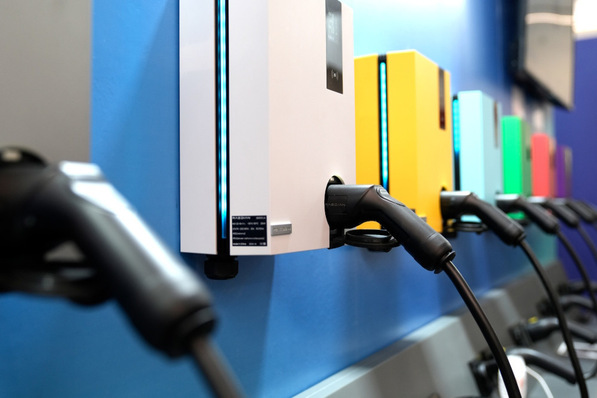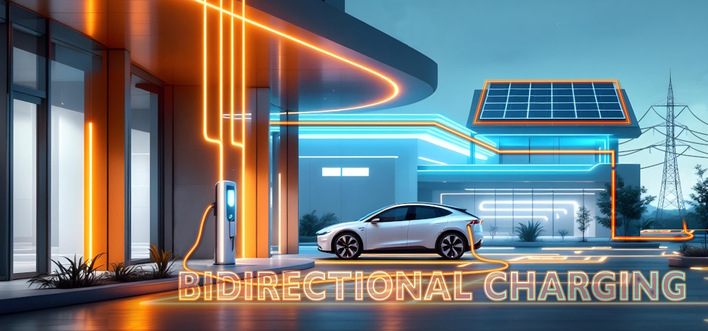These savings result primarily from a more efficient use of generation capacities, a reduction in curtailments and lower fuel consumption. This could mean a technological and economic breakthrough for bidirectional charging (BiDi) in European markets. However, a regulatory framework that promotes the use of this technology is crucial. Without it, the potential will remain untapped. The smarter E Europe, Europe's largest exhibition alliance for the energy industry, is responding to current developments.
pv Europe readers can get a free day ticket for The smarter E Europe with the promo code gentner_2025 here
It is dedicating a special exhibition to the topic of 2025 to highlight the opportunities and challenges for the mobility and energy industry. The smarter E Europe will take place from May 7 to 9, 2025 at Messe München and will combine the four exhibitions Intersolar Europe, ees Europe, Power2Drive Europe and EM-Power Europe.
Also interesting: Spain - EMT Valencia receives loan for 145 e-buses
By temporarily storing grid power and feeding it back into the batteries of electric cars, a high degree of flexibility can be provided and enormous sums can be saved: In the T&E study, the commissioned Fraunhofer Institutes estimate the savings potential for energy suppliers and consumers in the EU at up to 22 billion euros annually. That would be around eight percent of the cost of building and operating the EU energy system. According to the researchers, between 2030 and 2040, bidirectional charging technology could save more than 100 billion euros across the EU. In Germany alone, the study finds that annual savings of around 8.4 billion euros are possible by 2040.
Integration of solar power
These large sums can be realized by using the enormous storage capacity of the e-car fleet to integrate more and more electricity from renewable sources, especially solar power, into the energy system. According to the study, the use of vehicle batteries can reduce the need for more expensive stationary storage in the EU by up to 92 percent. In addition, installed PV capacity could increase by up to 40 percent over the same period.
Also see: We drive solar - Utrecht goes ahead
Prosumer benefits
Drivers of battery-powered electric vehicles can benefit directly from bidirectional charging. The study predicts significantly lower electricity costs for prosumers in the EU. And there is a surprising side effect for some people: the lifespan of vehicle batteries is likely to increase thanks to smart bidirectional charging, as the charging status of the batteries is optimized.
France is driving for free
So far, bidirectional charging has only been tested in various pilot projects. However, the Munich-based company The Mobility House and the vehicle manufacturer Renault have launched the first vehicle-to-grid (V2G) offering in France: owners of a V2G-capable Renault 5 can use a specially designed wallbox and a special tariff to charge their car for free, and in return they make their vehicle battery available to the entire energy system. The new offering is also set to be launched in Germany and the United Kingdom this year.
Next step: adapting the regulatory framework
But there are still a number of hurdles to overcome, especially in the high-volume German car market: the roll-out of smart meters, without which V2G does not work, continues to be sluggish, and the necessary legal framework has yet to be created. The results of the second European Summit for Bidirectional Charging, organized by the German Federal Ministry for Economic Affairs and Energy, show clear recommendations for action – now it is up to the industry to implement them. Key points could be to abolish the double taxation of temporarily stored electricity through grid fees, levies and surcharges, and to ensure that “green” electricity can retain its properties and funding entitlements under the Renewable Energy Sources Act even when it is temporarily stored in the battery of an electric car.
Special exhibition at The smarter E Europe 2025
A major special exhibition at the upcoming edition of The smarter E Europe will be dedicated to the products, applications and solutions for bidirectional charging that are already available on the market today, as well as a joint look into the future in this field. The exhibition will be located right next to the industry's meeting place, the Power2Drive Forum, at the heart of the exhibition. Sessions and panel discussions, tours and interactive elements will provide opportunities for exchange, discourse and networking. The special exhibition is being realized in cooperation with strong partners such as Eurelectric, the industry association of the European electricity industry, AVERE, the European industry association for e-mobility, and SmartEn, the European trade association for consumer-oriented solutions for the energy transition.
Also interesting: France sets out clear regulations for mandatory solar installation on car parks
Markus Elsässer, founder and CEO of Solar Promotion GmbH, and Hanna Böhme, Managing Director of Freiburg Wirtschaft Touristik und Messe GmbH (FWTM), make it clear: “We will make the potential and relevance of bidirectional charging visible for Germany and Europe and together we will continue to promote the topic. After all, bidirectional charging is not only an important element for the world of mobility, but also for establishing a 24/7 renewable energy supply in the energy system.”
Also see: Start-ups set the agenda at the smarter E Europe 2025
The smarter E Europe, Europe's largest exhibition alliance for the energy industry, combines four exhibitions (Intersolar Europe, ees Europe, Power2Drive Europe and EM-Power Europe) and will take place from May 7–9, 2025 at Messe München. (hcn)








